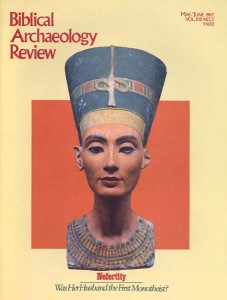The heretic Pharaoh Akhenaten lived a hundred years before Moses and practiced a form of monotheism. Ever since Freud’s Moses and Monotheism scholars and laypeople alike have wondered whether Akhenaten really was a monotheist and, if so, whether he had any influence on Moses. Armed with new evidence from thousands of blocks that once formed the decorated walls of Akhenaten’s Theban palaces—blocks that comprise the world’s largest jigsaw puzzle—Canadian Donald B. Redford scrutinizes the questions in “The Monotheism of the Heretic Pharaoh,” and describes how scholars are putting together this fascinating puzzle.

A historian and archaeologist, Redford is professor of Near Eastern Studies at the University of Toronto. His writings include Akhenaten: The Heretic King (Princeton University Press, 1984), a documentary film on the Akhenaten Temple Project (which he directs) called “Akhenaten: The Lost Pharaoh,” and the libretto for the opera Ra. In addition to the Akhenaten Temple Project at Thebes, Redford directs the East Karnak Excavations and serves as epigrapher for the Tell el-Maskhuta archaeological expedition.
Already a library member? Log in here.
Institution user? Log in with your IP address.

